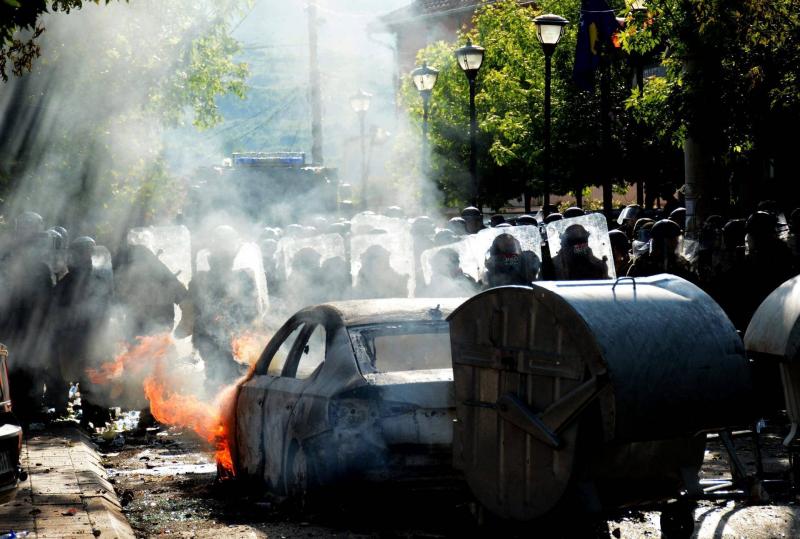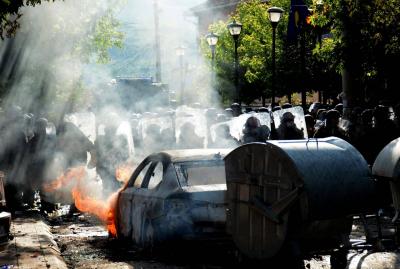The United States and the European Union have urged Kosovo to de-escalate the ongoing confrontation with Serbs in the northern part of the country or face "consequences" from their long-standing Western allies. The warnings came as U.S. and EU envoys concluded their visits to Kosovo and Serbia to calm tensions that erupted last week, resulting in injuries to dozens of NATO peacekeeping soldiers and Serbian protesters in northern Kosovo.
The violence erupted after Kosovo authorities appointed Albanian mayors to municipal offices. These mayors were elected in a vote with only a 3.5 percent turnout after Serbs, who make up the majority in the area, boycotted the local elections. U.S. envoy for the Western Balkans, Gabriel Escobar, stated that Kosovo must grant greater autonomy to predominantly Serbian municipalities if it hopes to move forward with joining NATO and the EU.
Escobar said in a statement to the media in Kosovo before heading to Belgrade, "The actions taken or not taken may have consequences affecting parts of the relationship between Kosovo and the United States." He and Miroslav Lajčák, the EU's special envoy, did not elaborate on other consequences that the Albanian-dominated government of Prime Minister Albin Kurti might face if it does not comply with their demands.
Kurti told reporters on Wednesday, "I do not believe that these matters are resolved through pressure and talk of consequences and even sanctions." The U.S. and EU have called for Kurti to withdraw the mayors from their positions, as well as to remove the special police units that helped establish the northern municipalities. They also demanded new local elections in the north with Serbian participation and for Kosovo to implement a 2013 agreement for the establishment of an association of Serbian municipalities to grant this community further autonomy.
NATO has about 4,000 troops in Kosovo and has ordered the deployment of an additional 700 troops due to the rising violence.




